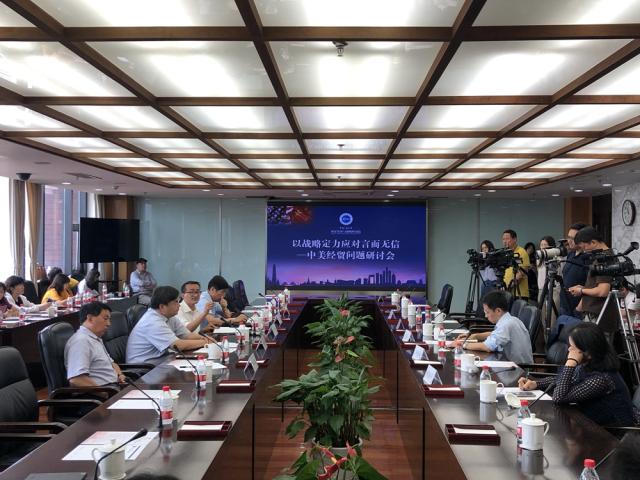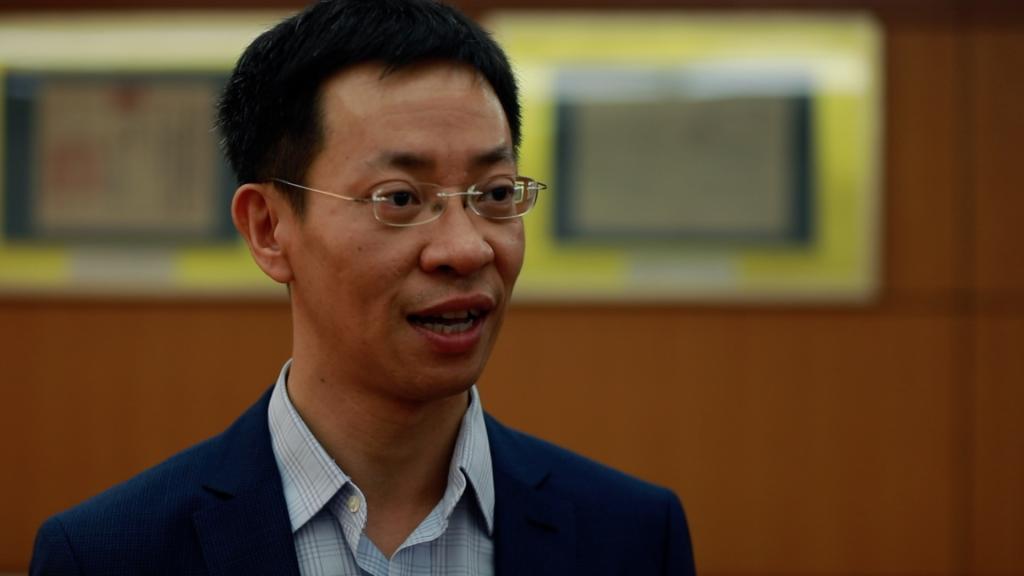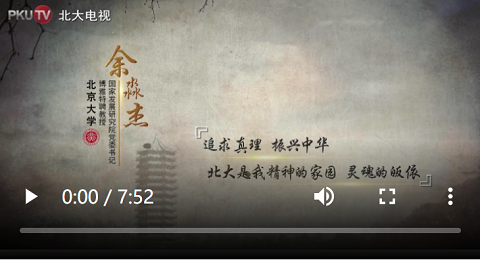The trade war between China and the United States could go on for another decade and hurt Americans more, experts warned on Monday during a seminar at the Renmin University of China, where 10 Chinese academics gave their analyses on the ongoing dispute. They believe that with strategic thinking and staying power, China can use the situation as an opportunity to upgrade its economy.
The seminar titled "Responding to Bad Faith with Strategic Resistance" came after the 12th round of bilateral trade talks last week in Shanghai. The talks, which the U.S. side has called "constructive," was followed by President Donald Trump's announcement of new tariffs on 300 billion dollars worth of Chinese exports, undoing an earlier agreement between the two countries' leaders in Osaka.
The latest twist in trade negotiations was an unacceptable act of hegemony and bullying and a show of bad faith by the U.S. side, said seminar host Liu Yuanchun, the deputy dean of Renmin University of China in opening remarks.
The speakers suggested that regardless of progress in the trade talks, China should brace itself for the long haul.

The trade war, which began in March 2018, has extended beyond issues of trade deficits to be a strategic contention between an incumbent power and a rising power, said Professor Tong Jiadong, former deputy dean of Nankai University.
"The U.S. strategy is lose-lose. There is no winner in a trade war. What the U.S. is doing is trying to inflict the maximum damage to China's economy with minimal sacrifices," Tong said.
As long as the U.S. is being caught up by another country, it will not stop until it beats the competition, he added, citing past examples of U.S. pressure on Europe, Russia and Japan.
The size of China economy has reached two-thirds, or 60 percent of that of the U.S., posing a far greater competition to the latter than the Soviet Union did during the Cold War, and Japan in 1985, when the U.S.-Japan trade war ended with the Plaza Accord.
"The U.S. negotiators lack sincerity. Negotiation is stick and carrot, but in the past 12 rounds of talks, there were only sticks, no carrots," said Professor Yu Miaojie, deputy dean of the National School of Development at Peking University. They want to beat the Chinese side into submission, he said.

But U.S. policymakers have miscalculated how much China's economy can withstand, experts say, pointing out that the previous 250 billion U.S. dollars in tariffs did not quite deliver the blow Trump had hoped.
China's overall foreign trade size is still growing, with a large decrease in trade with the U.S., noted Zhao Zhongxiu, dean of Shandong University of Finance and Economics.
Official data shows the Chinese economy in the first half of 2019 grew steadily, with improved quality and a more diversified trade structure.
"When external pressure becomes the new norm, it will give China the chance to turn pressure into a driving force," Zhao said.
However, the negative effects on the U.S. economy will be hard to ignore, and there could even be a "Trump recession" as these effects sink in, Tong said.
"The previous 250 billion U.S. dollars didn't affect the American people too much, but the new 300 billion U.S. dollars is going to have an all-round impact, not just on U.S. companies but on the consumers too. It will be a lot worse," said Professor Lang Lihua, former dean of the Capital University of Economics and Business.
The American consumers are going to pick up the bill as consumer goods become the next target, with the agriculture sector particularly hard-hit, Yu said.
Yu also estimated that trade frictions between the two countries could last for a decad.
Besides economics, some experts believe there is a political aspect in the U.S. decision to escalate the trade tension after the Shanghai talks. And what's next will largely depend on the domestic situation in the U.S.
"Politically speaking, China and America are seeing who has the domestic stability to sit it out, and we all know the answer," said Professor Cheng Dawei, a researcher at National Academy of Development and Strategy at the Renmin University of China.
"Trump has got to a critical point, where he cannot keep dropping bombs and setting fires. He behaves like this for political purposes, using Twitter to set a fire and then put it out. But this cannot continue. What do American voters get out of it?"
Please click here to watch the interview video of Prof. Yu Miaojie.
(From: CGTN website)



